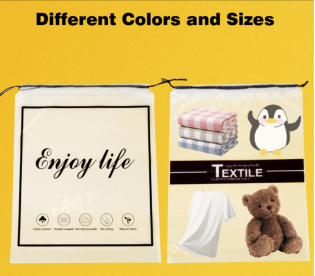Eco-Friendly Food Storage Solutions for Sustainable Living Choices
Eco-Friendly Food Containers A Sustainable Choice for a Greener Future
In today's fast-paced world, convenience often takes precedence over sustainability. With the rise of takeout culture and meal prepping, food packaging has become a significant contributor to environmental pollution. Single-use plastic containers dominate the market, leading to an alarming volume of waste that ends up in landfills and oceans. However, there is a growing awareness and demand for eco-friendly food containers that not only serve their purpose but also contribute to a healthier planet. This article explores the benefits, types, and significance of choosing eco-friendly food containers.
The Need for Sustainable Food Packaging
The convenience of plastic containers is undeniable—they are lightweight, durable, and often inexpensive. Yet, their environmental impact is profound. It is estimated that over 300 million tons of plastic are produced worldwide each year, with a significant portion used for food packaging. Given the slow decomposition rate of plastic (which can take hundreds to thousands of years), we face an ongoing crisis in managing plastic waste.
Eco-friendly food containers offer a viable solution to this pressing issue. Made from natural, renewable materials, they are designed to be biodegradable or recyclable, significantly reducing their impact on the environment.
Types of Eco-Friendly Food Containers
1. Biodegradable Containers These containers are made from organic materials such as cornstarch, bamboo, or sugarcane. They break down into natural substances over time, minimizing their environmental footprint. Biodegradable containers are especially popular for takeaway food, as they can withstand both hot and cold items.
2. Reusable Containers Glass, stainless steel, and silicone are excellent materials for reusable food containers. They are designed to last for years, reducing the need for single-use options. Glass containers are ideal for storing leftovers and meal prepping, as they do not leach harmful chemicals and are microwave safe. Stainless steel containers are durable and retain heat, making them perfect for lunches on the go.
3. Compostable Containers Similar to biodegradable options, compostable containers break down into nutrient-rich compost when disposed of properly. They are typically made from plant materials and are an excellent choice for eco-conscious restaurants and catering services.
eco food containers

4. Recycled Materials Some eco-friendly containers are made from recycled plastic or paper products, reducing the demand for virgin materials. By using existing resources, these containers help to lessen the overall carbon footprint associated with food packaging.
Benefits of Eco-Friendly Food Containers
1. Environmental Protection The most significant advantage of using eco-friendly food containers is their reduced impact on the environment. By choosing biodegradable or recyclable options, consumers help to diminish plastic pollution and conserve natural resources.
2. Healthier Choice Many traditional plastic containers contain harmful chemicals, such as BPA, which can leach into food. Eco-friendly containers, especially glass and stainless steel, are safer for food storage and help to eliminate the risk of chemical exposure.
3. Economic Savings While the initial investment in eco-friendly containers may be higher, they often prove to be more economical in the long run. Reusable containers eliminate the need for frequent purchases of disposable options, ultimately saving money.
4. Support for Sustainable Practices Purchasing eco-friendly food containers supports companies that prioritize sustainability. This choice encourages businesses to adopt more environmentally conscious practices and develop innovative solutions to reduce waste.
Making the Switch
Transitioning to eco-friendly food containers is a simple yet impactful step individuals and businesses can take toward a sustainable future. When dining out, opt for establishments that use biodegradable or reusable containers. For personal use, investing in high-quality glass or stainless steel containers can greatly reduce your plastic consumption.
In conclusion, the rise of eco-friendly food containers marks a significant turning point in the battle against plastic pollution. As consumers become more environmentally conscious, they need to make informed choices that benefit both their health and the planet. By choosing sustainable packaging options, we can collectively reduce waste, protect our ecosystems, and encourage a more sustainable future for generations to come. Making the shift to eco-friendly food containers is not just a trend; it is an essential step toward creating a healthier and greener world.
-
The Best Uses for Small Trash Bags in Daily LifeNewsJul.01,2025
-
Stylish Reusable Grocery Bags TrendsNewsJul.01,2025
-
Shipping Advantages of Using Bubble Envelopes BulkNewsJul.01,2025
-
How Compostable Mailing Bags Reduce Environmental ImpactNewsJul.01,2025
-
Environmentally - Friendly Bulk Poly MailersNewsJul.01,2025
-
Eco Friendly Custom Laminated Tote BagsNewsJul.01,2025
-
Have the freedom of customizing your custom mailers any way you want! Our dedicated packaging support will help deliver you the mailing experience you need to elevate your shipping experience to the next level! Start making a strong impression on your customers and stand out from your competitors! -
LIYA uses high quality raw materials which directly purchased from large enterprises domestic and overseas such as PetroChina, Sinopec, Sabic, Equate, ExxonMobil, Dow Chemical, Total, and Borouge, ensuring the price advantage and quality of the raw materials. -
LIYA uses high quality raw materials which directly purchased from large enterprises domestic and overseas such as PetroChina, Sinopec, Sabic, Equate, ExxonMobil, Dow Chemical, Total, and Borouge, ensuring the price advantage and quality of the raw materials.





